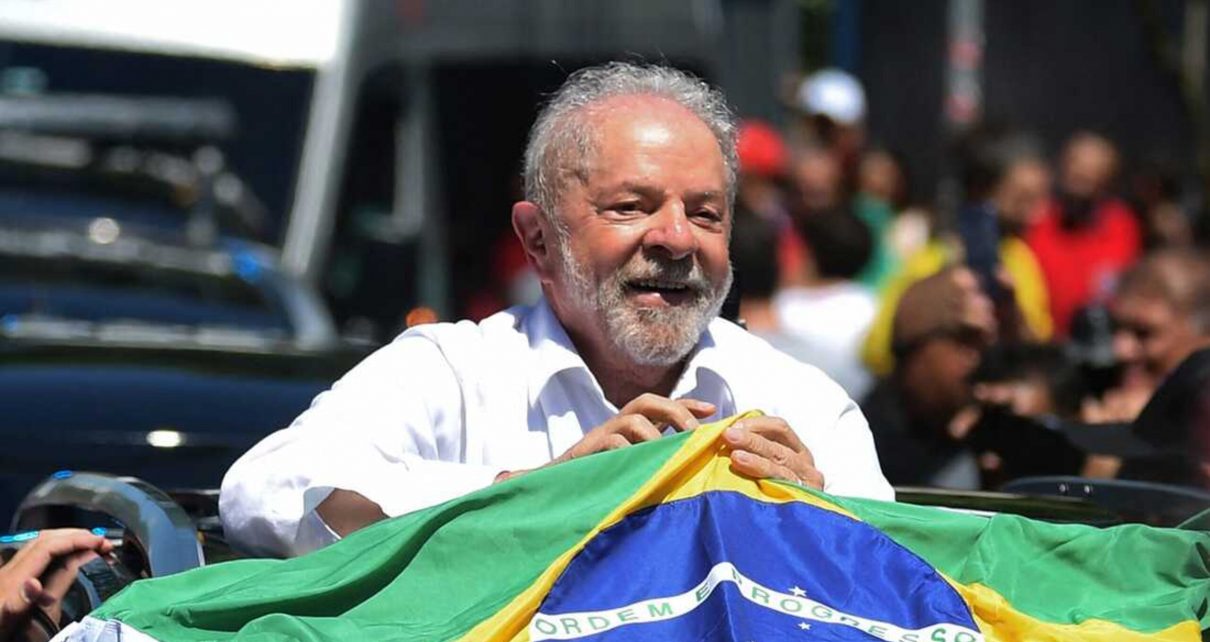
LUIZ Inácio Lula da Silva, 77 had done his duty to his long-suffering country, Brazil. His origins were rough, like those of his motherland.
The product of a polygamous family, he learnt to read at ten and began working at 12. At 19, while working as a press operator, he lost the little finger on his left hand. His rough experience trying to get treatment, led him to trade unionism.
He became a metal worker at Villares Metals S.A., then a labour leader and a pro-democracy activist against a brutal military dictatorship, during which he was jailed. In 1980, with the military regime still on a rampage, Lula joined other radicals, and labour activists to found the Partido dos Trabalhadores, or PT or the Workers’ Party. Three years later, he became one of the founders of the Brazilian labour centre, the Central Unica dos Trabalhadores, better known as CUT.
Brazil, for centuries after being seized in the 15th Century and shared as booty by Spain and Portugal, had been battered, enslaved and exploited. In 1506, both colonialists agreed to merge the Eastern Coast of Brazil ‘owned’ by Spain, with the rest of Brazil run by Portugal into a single colony under Portugal. In compensation, Portugal in 1778, under the Treaty of El Pardo, gave out Equatorial Guinea to Spain so that the latter would be able to acquire African slaves for its territories in the Americas. Brazil became independent in 1822 and abolished slavery six years later. In 1889, a military coup removed the monarchy.
Brazil was never short of patriots who rose to fight for the poor, the disenfranchised, and the helpless. Before Lula, was the writer and guerrilla fighter, Carlos Marighella, who was first detained in 1932 and again in 1936, during which he spent one year in jail. On his release, this writer of famous books like For the Liberation of Brazil and Minimanual of the Urban Guerrilla. went underground, but was arrested again in 1939 and spent six years in prison. In 1946, Marighella was elected the Federal Deputy for Bahia but lost his seat two years later when his party, the Brazilian Communist Party, was proscribed.
On March 31, 1964, a bloody military coup was staged against President Joao Goulart of the Brazilian Labour Party for introducing social reforms, nationalising the oil refineries and introducing rent controls. The coup plotters shot Marighella at a movie theatre in Rio. He survived and was released the following year. After his release, Marighella took to an armed struggle to remove the military dictatorship. On November 4, 1969, he was caught in an ambush in Sao Paulo, shot and killed. His tombstone in Salvador, Bahia bears his quote: “I didn’t have time to be afraid.”
Lula was one of the radicals who followed Marighella’s footsteps in fighting the brutal military regime. He became a Federal Deputy in the state of São Paulo, and when Brazil for the first time in 29 years had presidential elections by direct popular vote in 1989, Lula was on the ballot. He lost and was to lose two more times in 1994 and 1998 before winning the 2002 elections with 61.3 per cent of the votes in a run-off. He was re-elected in 2006 and became the country’s most transformative president. In its seven years in office, the Lula administration lifted 20 million Brazilians out of poverty, moved 30 million from lower classes to the middle class, and reduced inflation, unemployment, inequality, infant mortality, and child labour, while increasing average income, the minimum wage, and access to healthcare and education at all levels.
Lula whose administration carried out mass housing projects, extended the electricity network, drastically reduced child malnutrition, introduced ‘Family Allowance’ and fought hunger with a ‘Zero Hunger’ project and the creation of the Ministry of Social Development and Eradication of Hunger. In May 2010, the United Nations World Food Programme awarded Lula the “World Champion in the Fight against Hunger” medal. The Lula administration in 2005, paid off Brazil’s entire debts to the International Monetary Fund.
Internationally, he championed environmental issues and on June 16, 2009, led his country to join Russia, India and China to found the alternative socio-economic and political bloc, BRIC, which with the inclusion of South Africa the following year, became BRICS. Lula said his performance in office was partly fired by his desire to make a point that people, despite their very low education and poor origins, can make good leaders. As he left office, he said: “If I failed, it would be the workers’ class which would be failing; it would be this country’s poor who would be proving they did not have what it takes to rule.”
After two terms, he was ineligible to run, so he backed his former Chief of Staff, Dilma Rousseff, one of those who had been tortured under military rule. She won with 55,752,483 votes or 56.05 per cent of total vote, but her administration found it difficult to survive the barrage of local and international right-wing attacks aimed at reversing the socio-economic and political gains in the country. One of the desperate measures in 2016 was to drag Lula from retirement to become her Chief of Staff, but the Supreme Court suspended that appointment.
On Monday, April 11, 2016, a civilian coup against President Rousseff began to unfold with a Congressional Committee voting 38-27 to recommend her impeachment on the ridiculous basis that she did not, in 2014, disclose the true size of the budget deficit! The coup succeeded. After this, the coup plotters turned to Lula, falsely accusing him of corruption, for which in 2017, he was sentenced to a dozen years of imprisonment and barred from contesting the 2018 elections. This process led to the rise of Bolsonaro, a former army captain who praised the decomposing bloody military dictatorship, promoted racism, and social inequality and led many Brazilians to early deaths during the COVID-19 pandemic when he declared it a fake and encouraged mass rallies during which the pandemic spread like wildfire.
Bolsanaro systematically opened up the Amazon for systematic destruction with a 52.9 per cent increase in deforestation during his first three years in office. He deliberately underfunded environmental protection agencies and encouraged loggers, miners and land-grabbers to seize indigenous lands.
In 2021, the Supreme Court totally cleared Lula of corruption and declared him eligible to contest elections. Lula who has worked for the last 65 years, was forced out of retirement to rescue Brazil which was reeling on the canvass after many near-death blows.
With his victory on Sunday, October 30, 2022, beating incumbent President Bolsonaro with 50.9 per cent of the re-run votes, battered Brazil is back on its feet. But a very tough battle of full recovery and restoration lies ahead.
- Owei Lakemfa is a journalist, labour and social rights activist and host of Diplomatic Hour, Citizen FM, Abuja.


